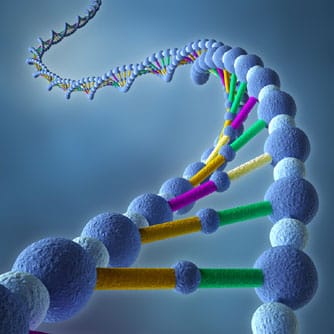Telomeres are the end caps of chromosomes, protecting the DNA complexes from deterioration during cell division. Telomere shortening is considered a marker of cellular aging, and prematurely shortened telomeres have been linked to increased risk of cancers, heart disease, dementia and death. Helen M. Blau, from Stanford University School of Medicine (California, USA), and colleagues delivered modified mRNA encoding TERT, the enzyme that increases the length of telomeres by adding DNA repeats, to four groups of cells. The first group received modified mRNA encoding TERT, and the other three groups were controls that received either mRNA encoding an inactive form of TERT, the solution in which TERT is delivered, or no treatment. The telomeres of the first group (telomere-extending treatment group) were rapidly lengthened over a period of a few days, whereas the telomeres of the three control groups were not extended. The first group was also able to undergo more cell divisions, whereas the controls were not. Importantly for the potential safety of this approach, the telomeres of the first group resumed shortening after they were extended, showing that due to the short, transient treatment, the cells were not immortalized. Further, all of the cell populations treated eventually stopped dividing, indicating that they were not immortalized. This approach has been tested on cell types including fibroblasts and myoblasts and is now being tested on stem cells. Additionally, this research showed that cells could be treated several times with enhanced effects on the capacity for division. Since the increase in numbers is compounded with each treatment, a small sample of cells, for example from a small biopsy, can be amplified to very large numbers. Observing that: “delivery of modified mRNA encoding TERT … increases telomerase activity transiently (24-48 h) and rapidly extends telomeres,” the study authors submit that: “this rapid method of extending telomeres and increasing cell proliferative capacity without risk of insertional mutagenesis should have broad utility in disease modeling, drug screening, and regenerative medicine.”
Biotech Lengthens Telomeres
Ramunas J, Yakubov E, Brady JJ, Corbel SY, Holbrook C, Brandt M, Stein J, Santiago JG, Cooke JP, Blau HM. “Transient delivery of modified mRNA encoding TERT rapidly extends telomeres in human cells.” FASEB J. 2015 Jan 22. pii: fj.14-259531.
RELATED ARTICLES




